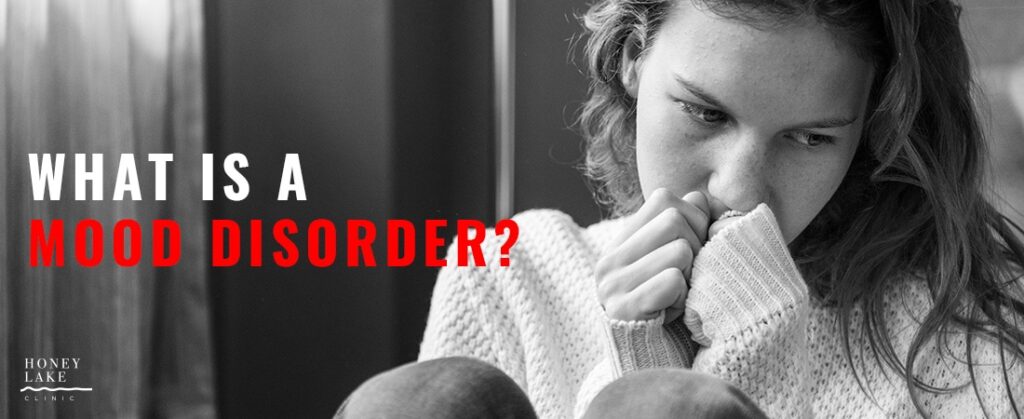What is a Mood Disorder?
Mood disorders are a category of illnesses that describes a serious change in mood. If you have a mood disorder, your general emotional state or mood is distorted or inconsistent with your circumstances. This can interfere with your ability to function in many life settings.
Do you feel like your emotions are interfering with your work, relationships, social activities or other parts of your life? Call to speak confidentially with a counselor now, (888) 837-6577.
Common Mood Disorders include:
- Major depressive disorder — prolonged and persistent periods of extreme sadness
- Bipolar disorder — also called manic depression or bipolar affective disorder, depression that includes alternating times of depression and mania
- Seasonal affective disorder (SAD) — a form of depression most often associated with fewer hours of daylight in the far northern and southern latitudes from late fall to early spring
- Cyclothymic disorder — a disorder that causes emotional ups and downs that are less extreme than bipolar disorder
- Premenstrual dysphoric disorder — mood changes and irritability that occur during the premenstrual phase of a woman’s cycle and go away with the onset of menses
- Persistent depressive disorder (dysthymia) — a long-term (chronic) form of depression
- Disruptive mood dysregulation disorder — a disorder of chronic, severe and persistent irritability in children that often includes frequent temper outbursts that are inconsistent with the child’s developmental age
- Depression related to medical illness — a persistent depressed mood and a significant loss of pleasure in most or all activities that’s directly related to the physical effects of another medical condition
- Depression induced by substance use or medication ― depression symptoms that develop during or soon after substance use or withdrawal or after exposure to a medication
Mental Illness, Substance Abuse and Mood Disorders
Depression is a common feature of mental illness. A person with a history of any serious psychiatric disorder has almost as high a chance of developing major depression as someone who has had major depression itself in the past.
Alcoholism and other forms of substance dependence are also related to depression. Dual diagnosis—substance abuse and another psychiatric disorder, usually a mood disorder—is an increasingly serious mental health concern. Whether substance use causes the mood disorder or the mood disorder contributes to the substance use, the two in chorus can throw life into a downward spiral. Rather than wrestle over which came first, the chicken or the egg, both need to be treated appropriately in order to recover health and wholeness.
Physical Illness
Physical illness can be associated with mood disorders also. Some 25% of hospitalized medical patients have noticeable depressive symptoms and about 5% are suffering from major depression. Chronic medical conditions associated with depression include heart disease, cancer, diabetes, and hepatitis among others. Depression is also a common effect of neurological disorders, including Parkinson’s and Alzheimer’s diseases, multiple sclerosis, strokes, and brain tumors. Any illness feels worse and is harder to combat for someone suffering from depression.
You’re Not Alone
According to a recent National Comorbidity Survey-Replication study, about 20.9 million American adults, or 9.5 percent of the population ages 18 and older, have mood disorders. Additionally, the study reports—
- An estimated 9.7% of U.S. adults had any mood disorder in the past year.
- Prevalence of mood disorder among adults was higher for females (11.6%) than for males (7.7%).
- An estimated 21.4% of U.S. adults experience a mood disorder at some time in their lives.
When to Seek Help
It is highly unlikely your mood disorder will go away on its own, and it may worsen over time. You should seek professional help before your mood disorder becomes severe.
The very good news is that mood disorders can be successfully treated, and many who suffer are cured on a daily basis.
You can be free of your mood disorder’s grip!
At Honey Lake Clinic, our experienced doctors and staff strongly believe that faith-based treatment, encompassing mind, body and spirit, will help you develop the spiritual and psychological skills which bring renewal and healing.
Our professional and experienced team of licensed therapists, psychologists, and psychiatric specialists will assist you in regaining control of your life. The individualized treatment, experienced staff, and tranquil environment at Honey Lake Clinic can help you regain control of your life and find lasting transformation.
